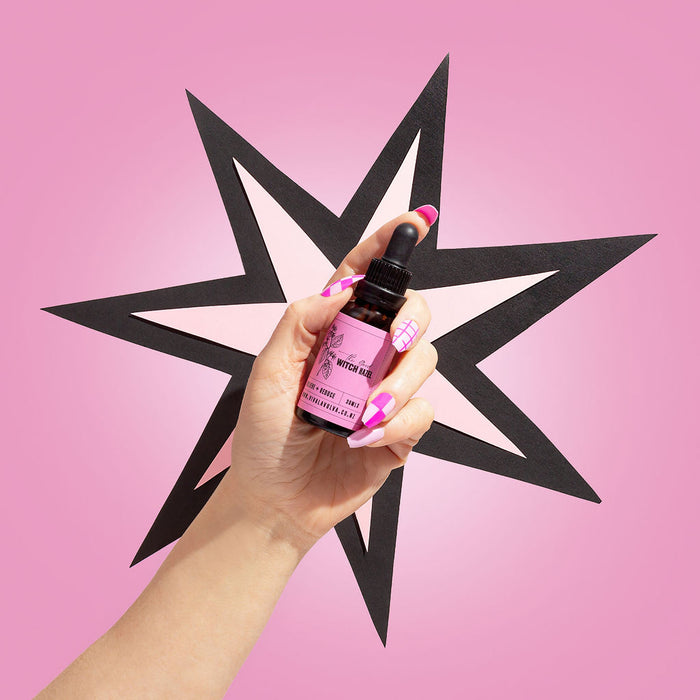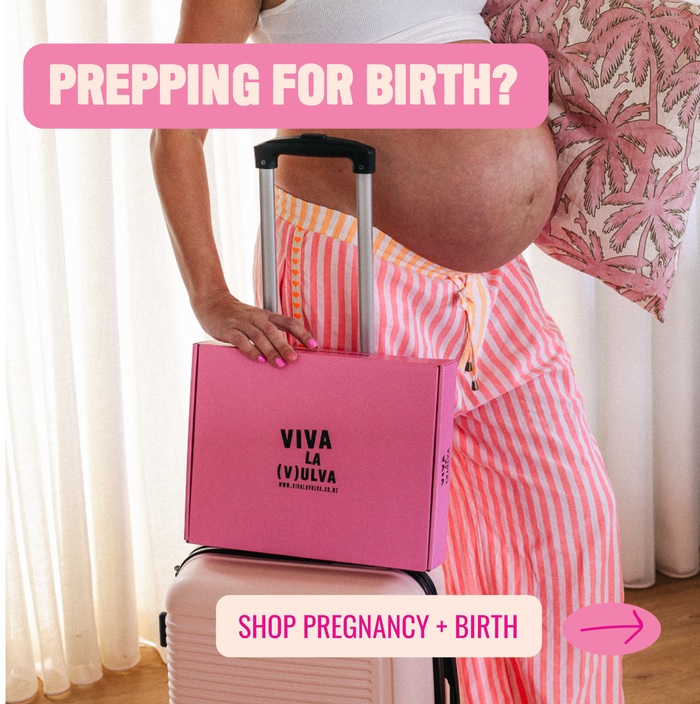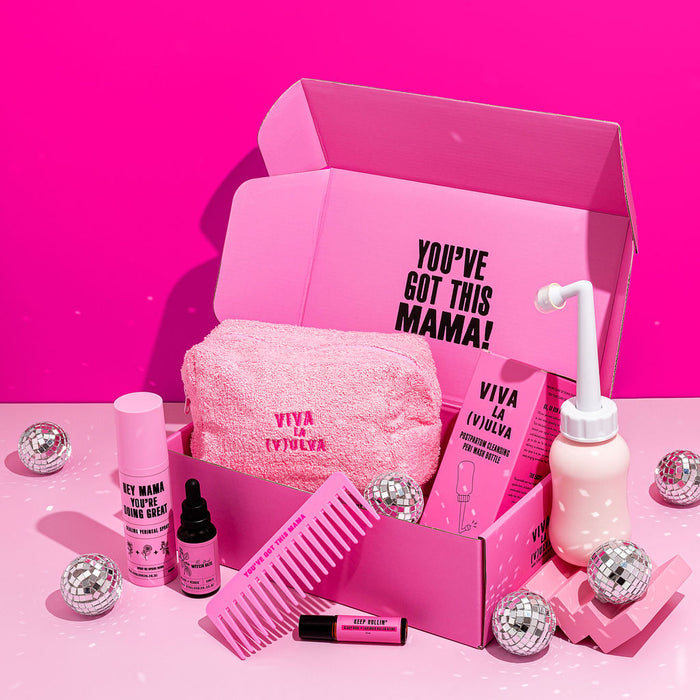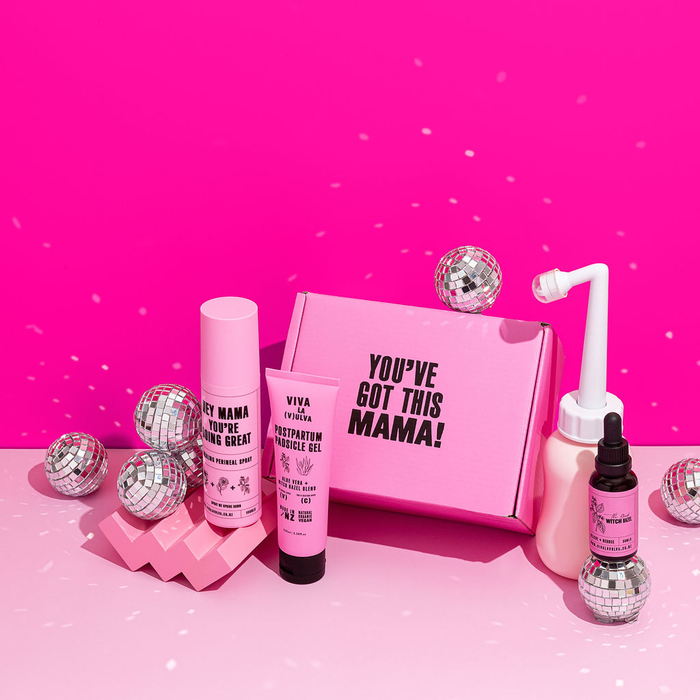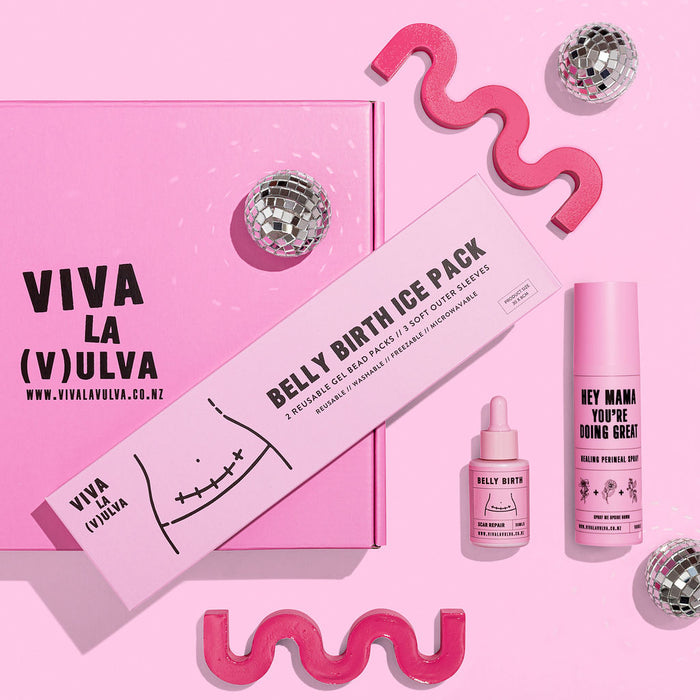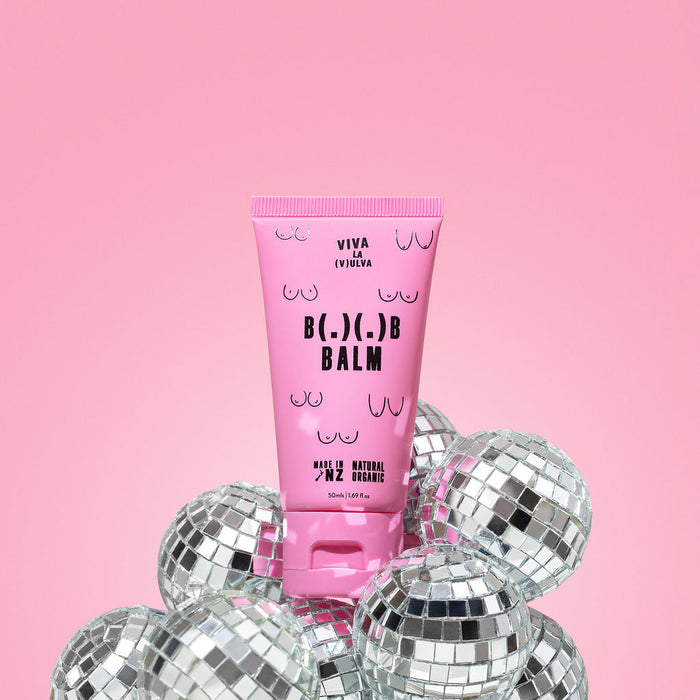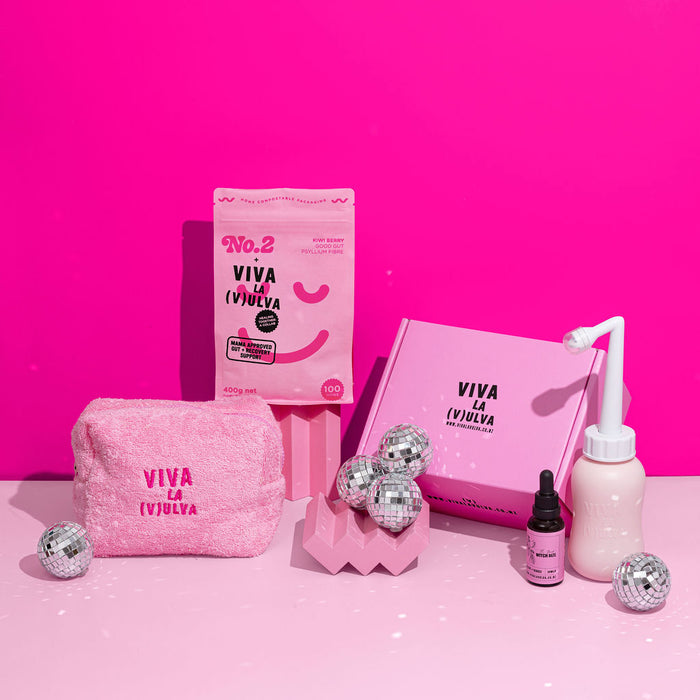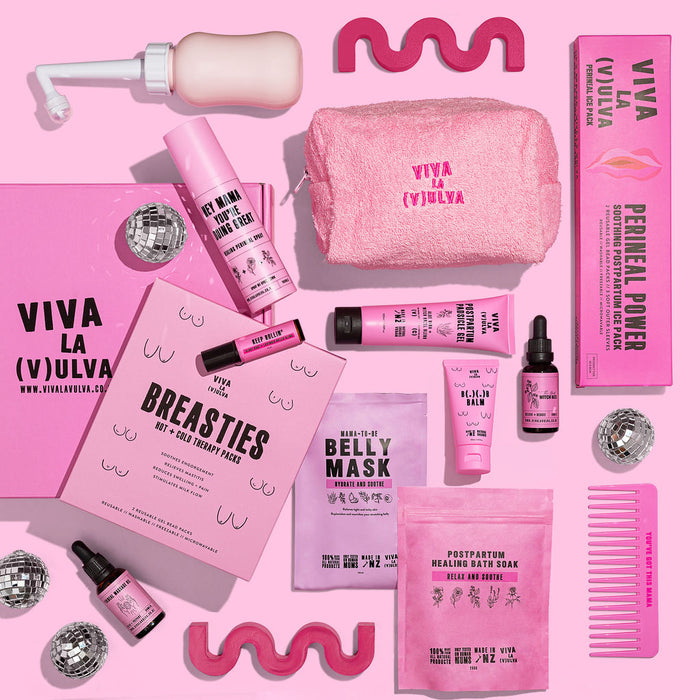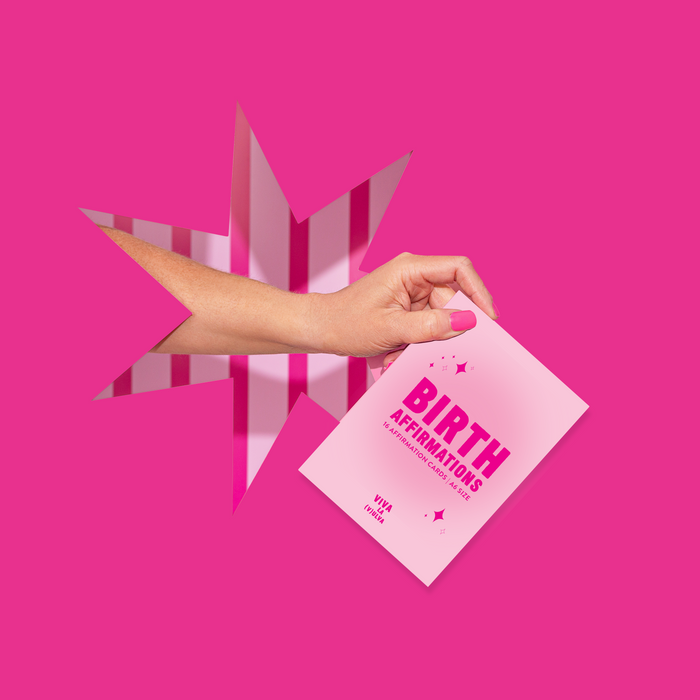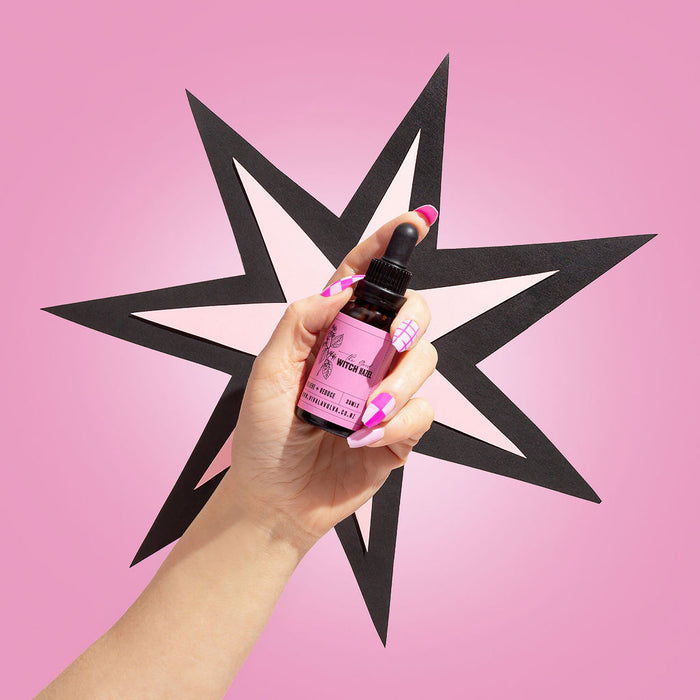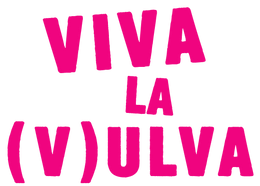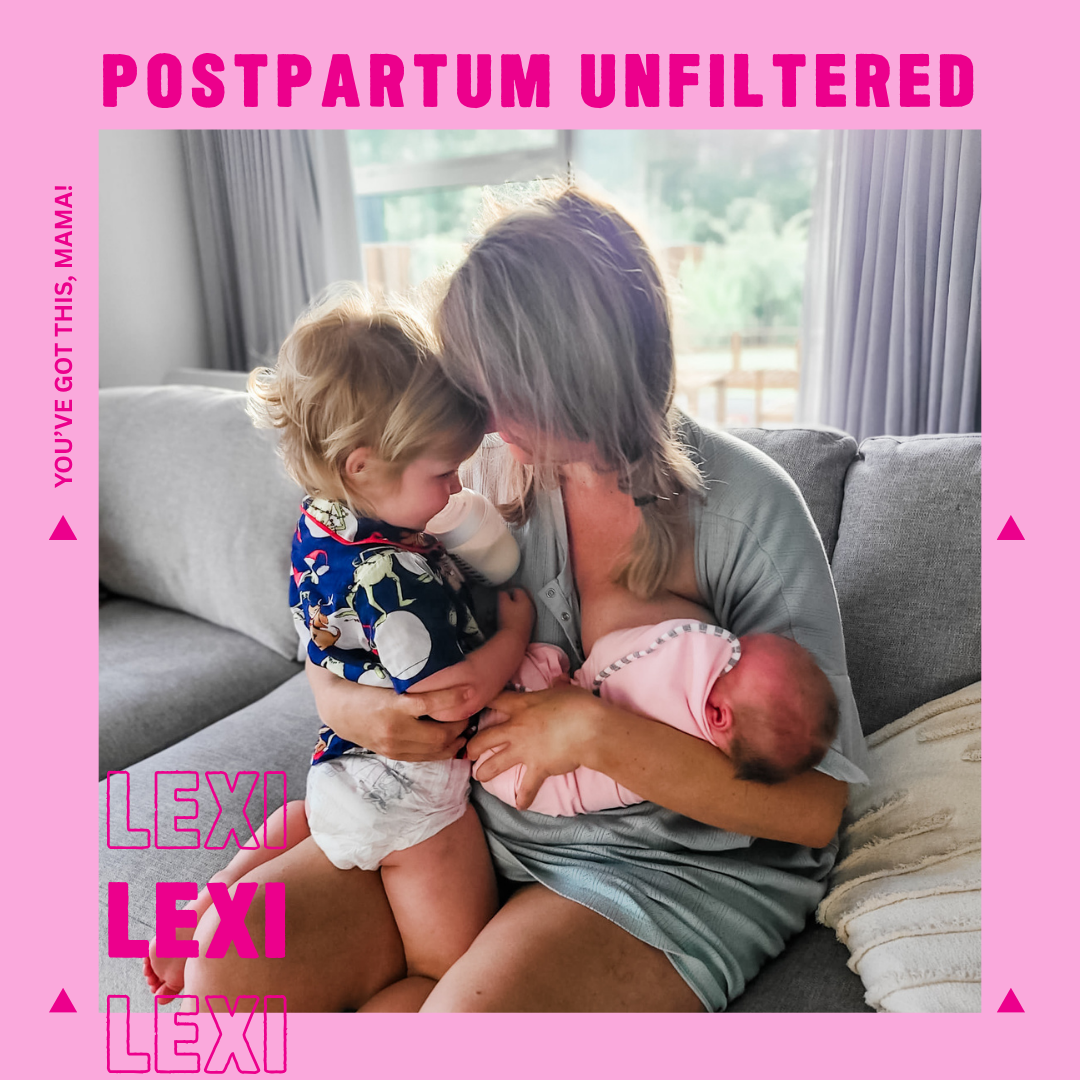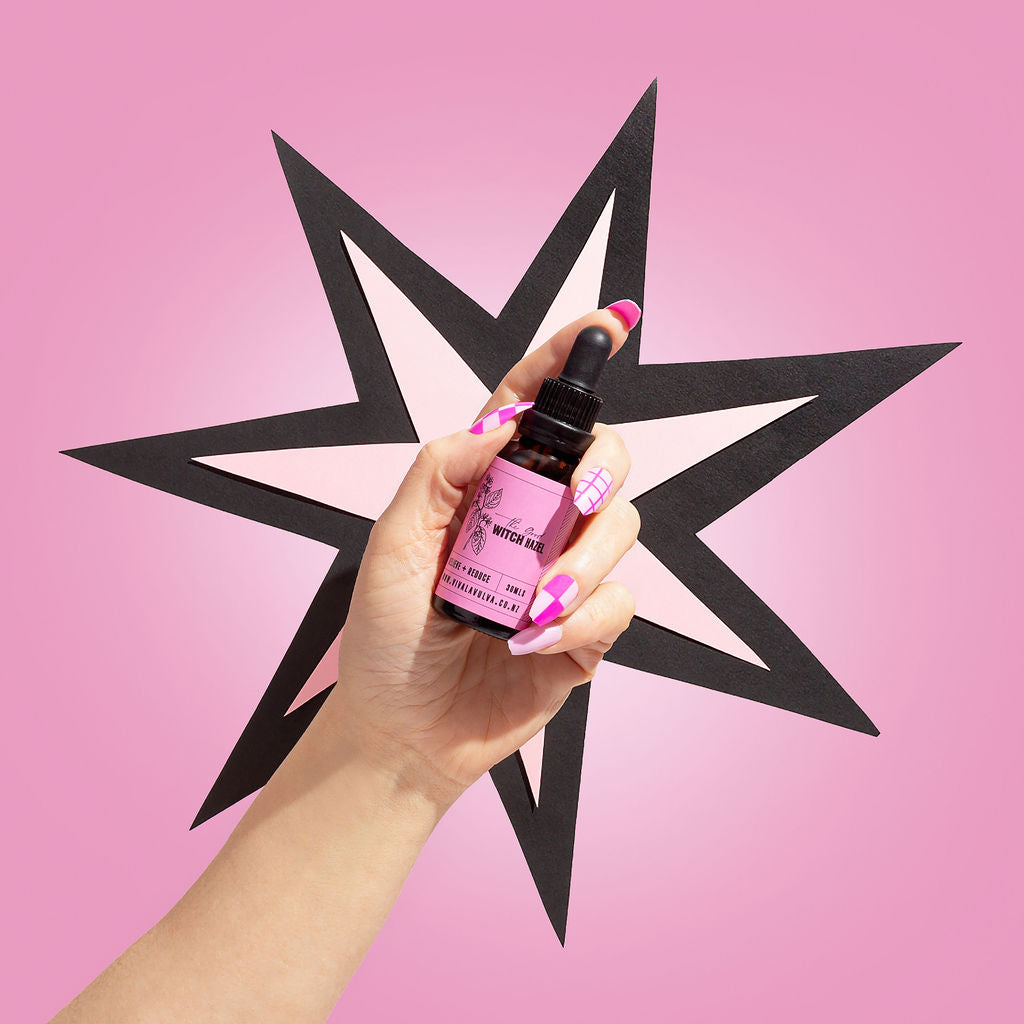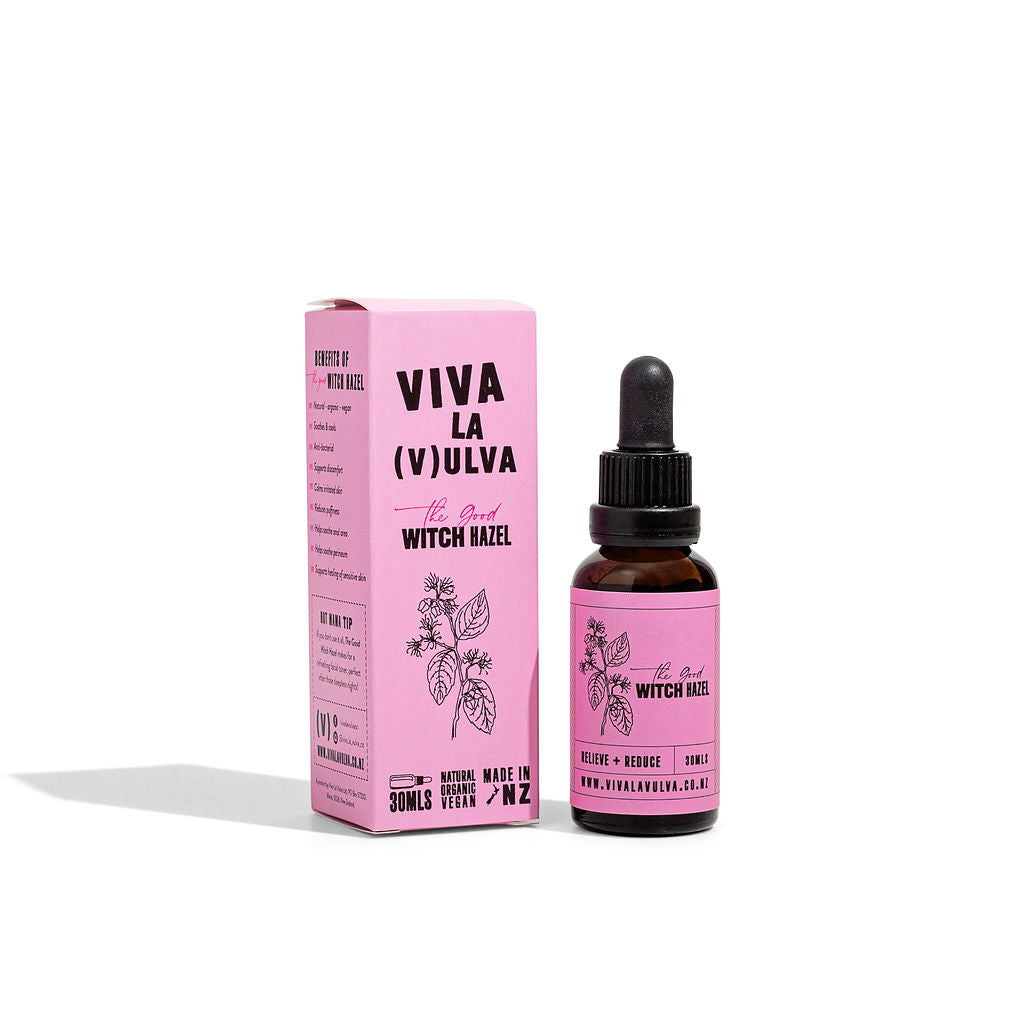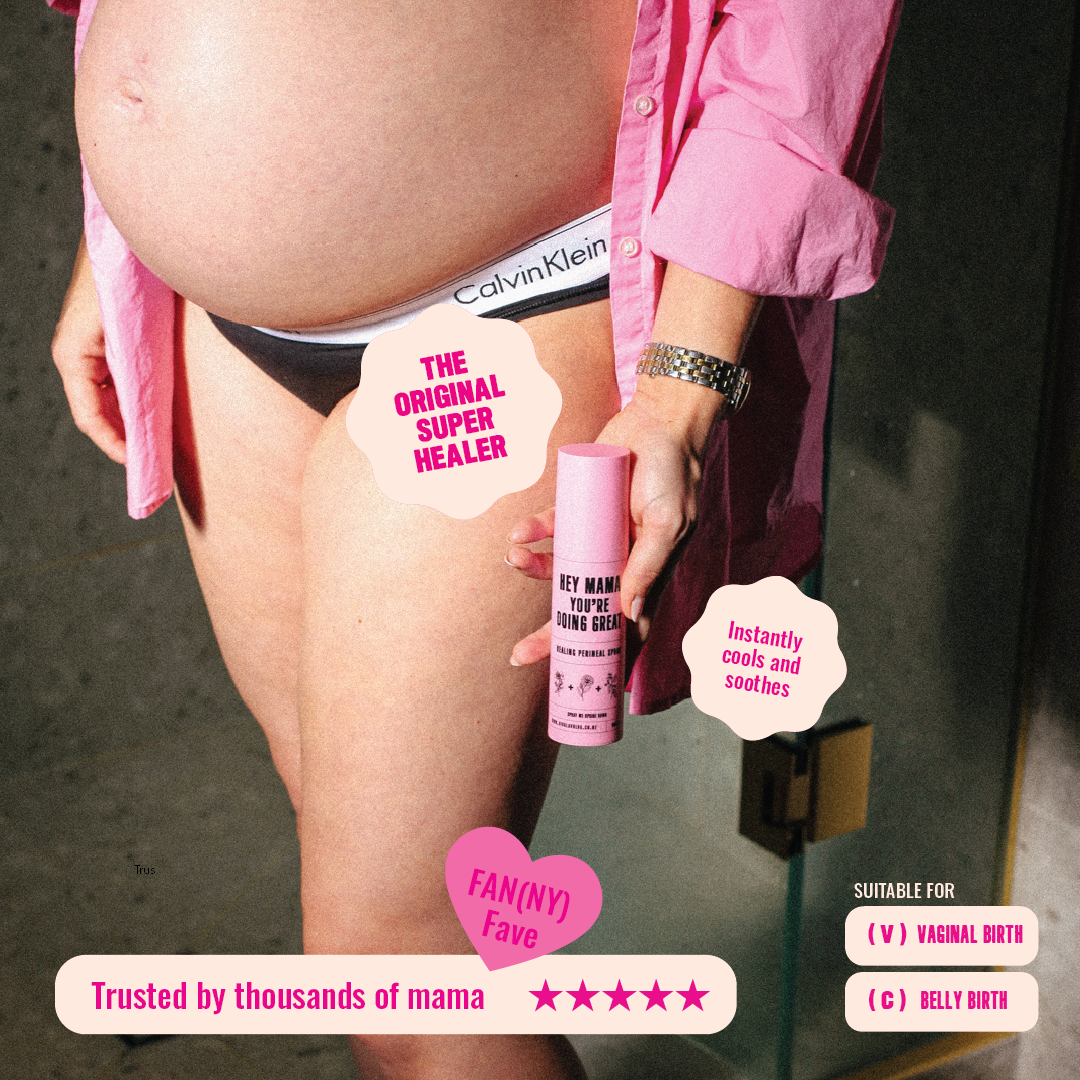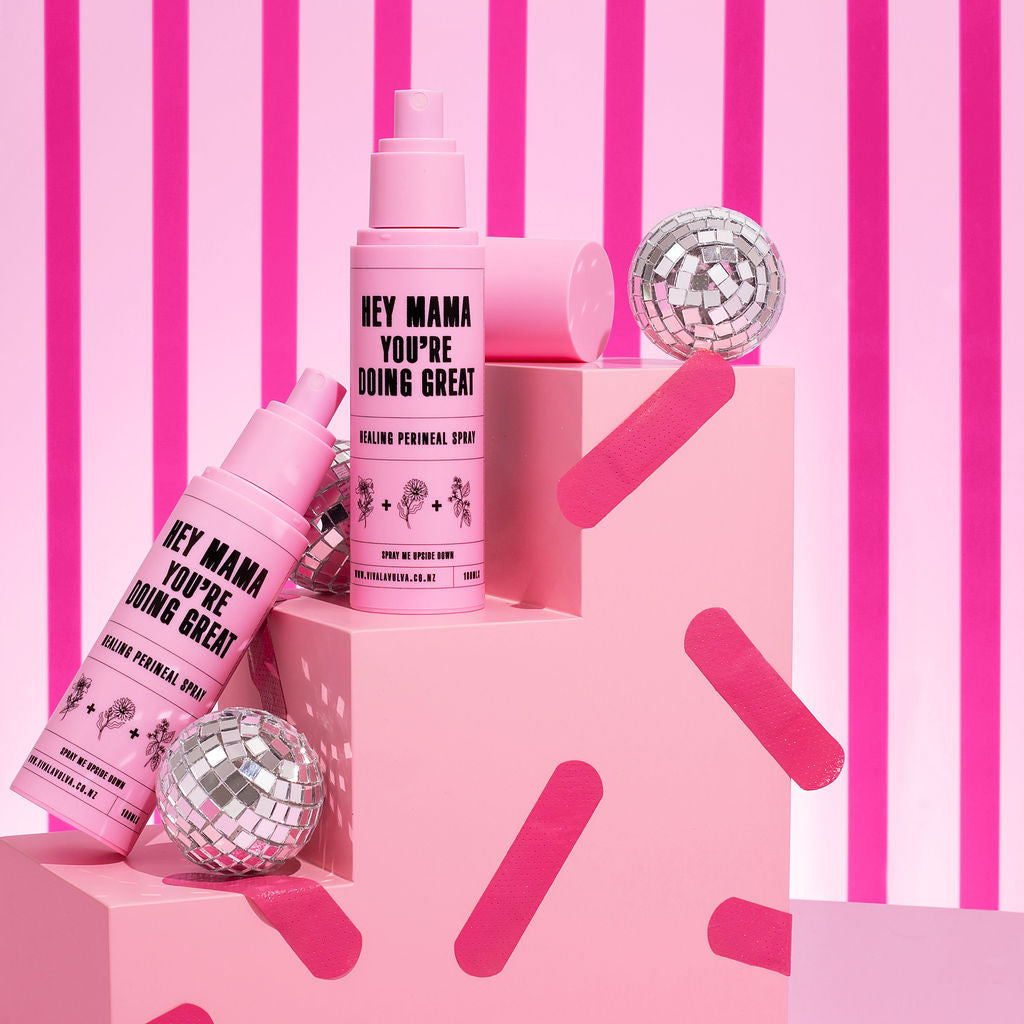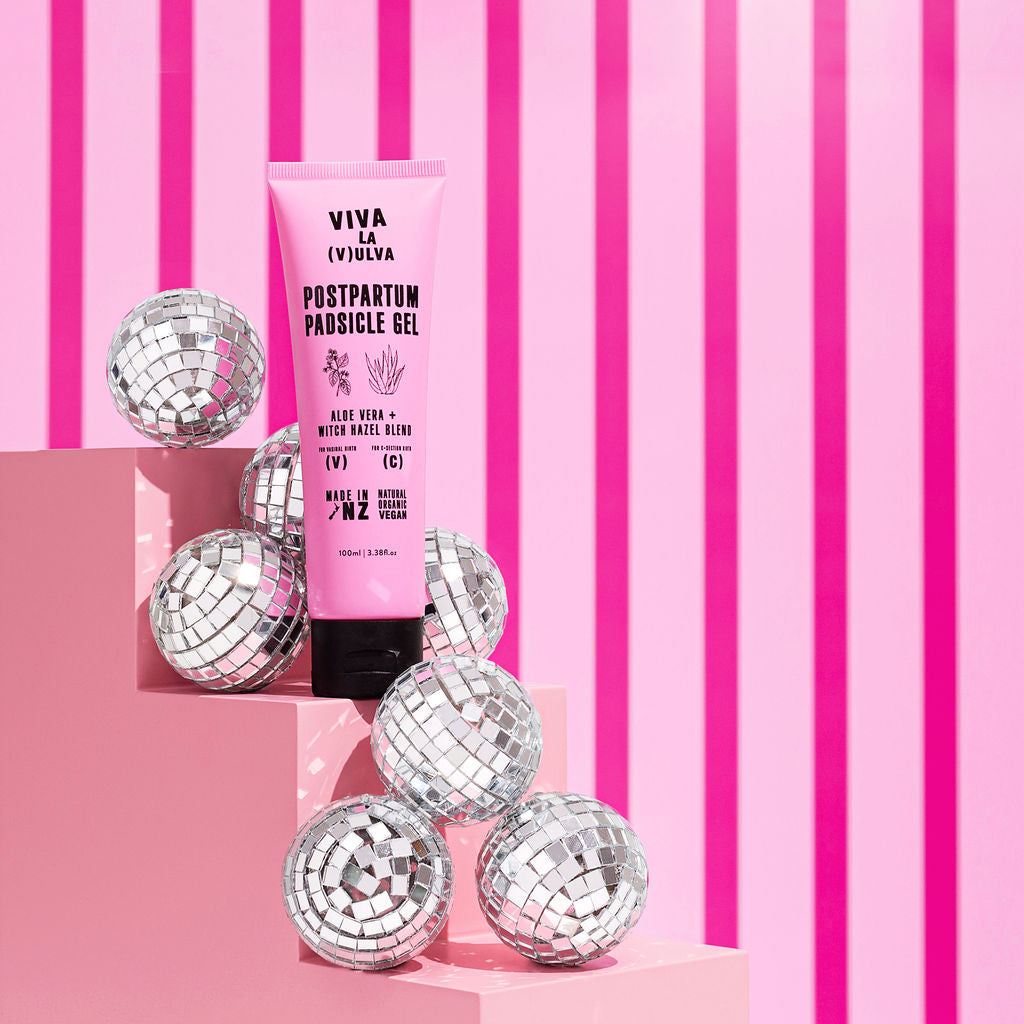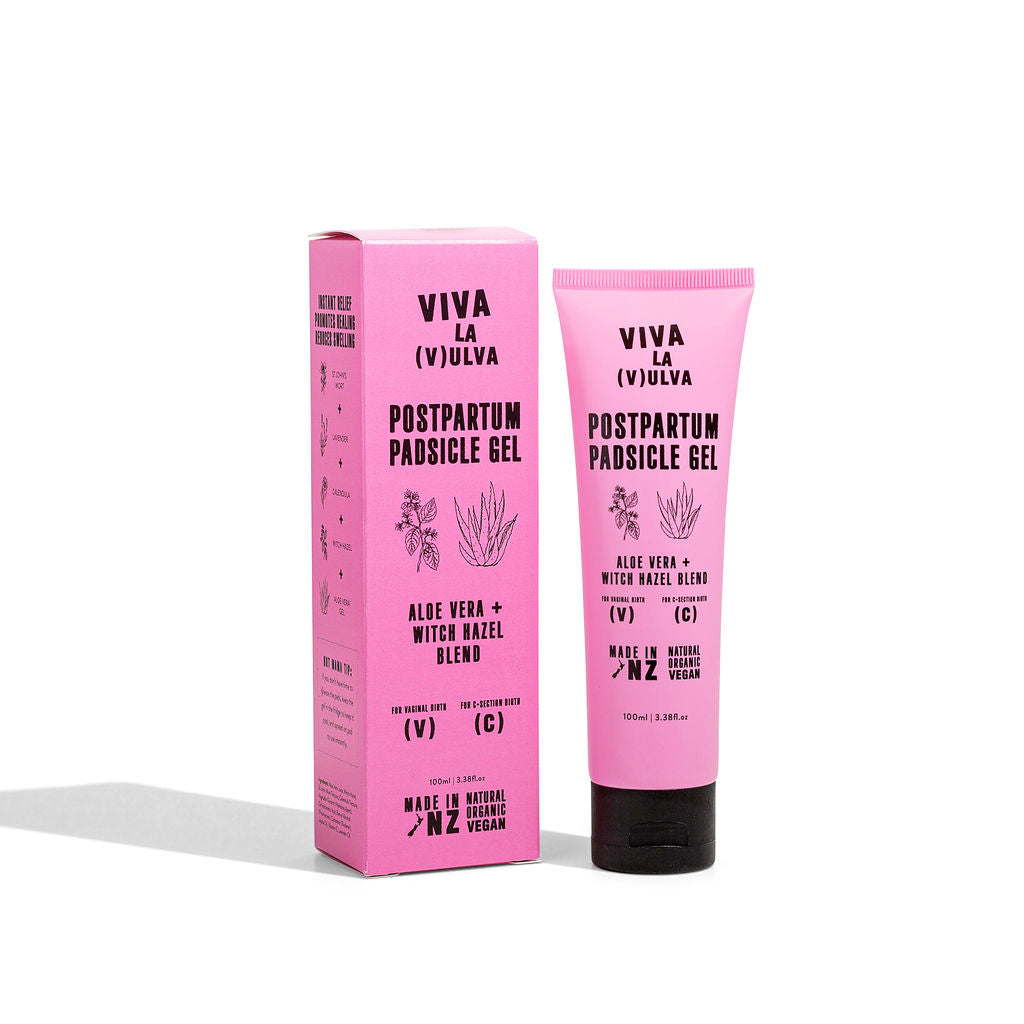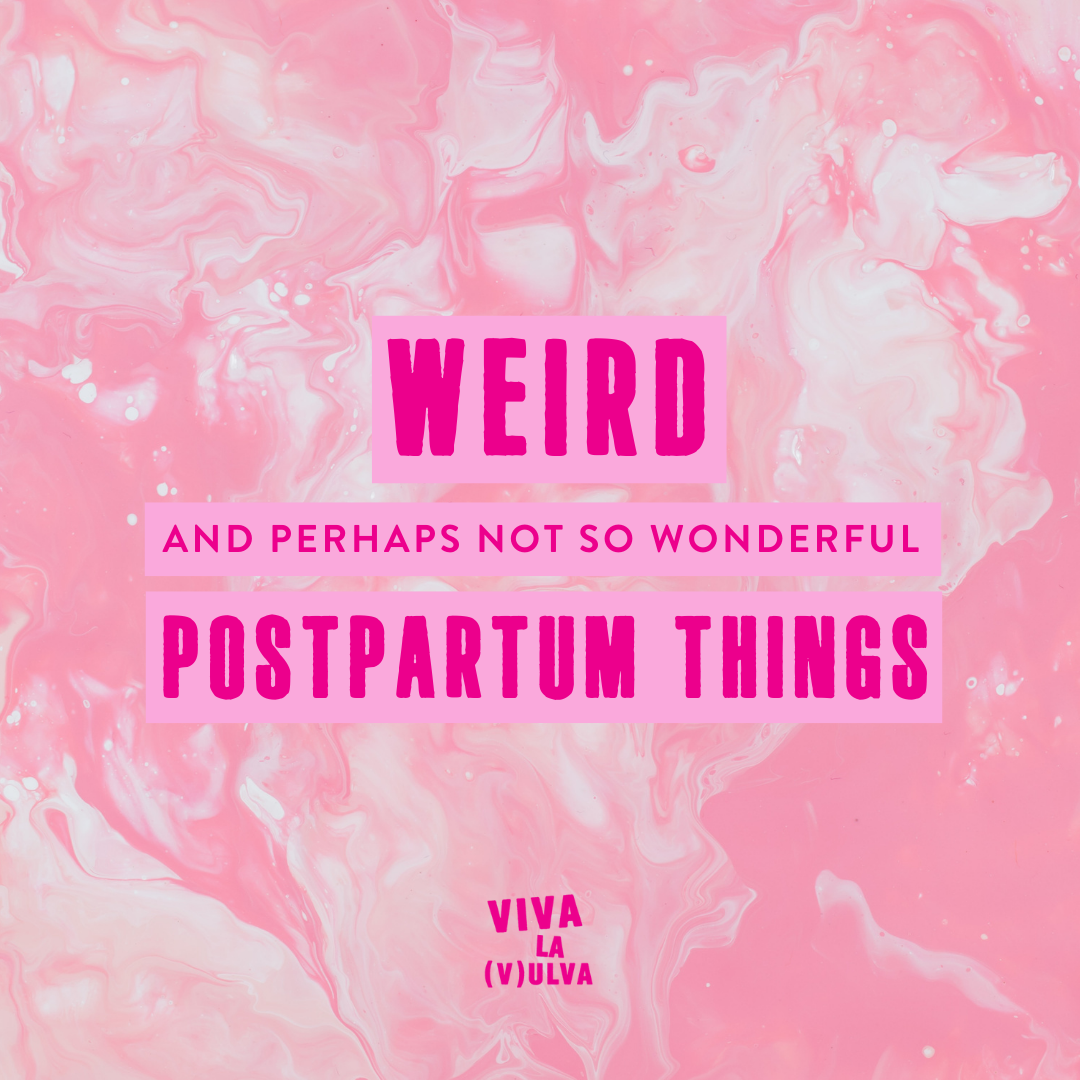
Other Weird and not so Wonderful Things - Postpartum
OTHER WEIRD AND PERHAPS NOT SO WONDERFUL THINGS - POSTPARTUM
Hey mama! This is the fifth part of our Viva La Vulva prepared for postpartum series, and we’re talking about the many weird and perhaps not so wonderful postpartum things and what you can expect and prepare for.
Having a baby is exciting, yes, and it’s also a huge adjustment. And at Viva La Vulva we believe an educated mama is an empowered mama! Just as all pregnancies and births are completely unique, all postpartum journeys are too. How you deliver your baby will affect the way you heal and recover. We want to make sure you go into the fourth trimester (and beyond) as prepared as you can knowing exactly what to expect from your body in the weeks and months after birth.
While it’s totally necessary to educate yourself about pregnancy, labour and birth, preparing for postpartum is essential! You are giving your future self the best possible chance at healing comfortably and transitioning to motherhood gracefully.
Your body changes a lot after you give birth, changes that are physical and some emotional. In Part 5 of our preparing for postpartum series, we are serving up some real talk about the weird and perhaps not so wonderful postpartum things… We talk about what to expect, share tips and tricks to help you navigate these changes!
Can we just say thank you for being here. And now that you’re here let’s take a quick minute to recognise 👏🏼 you and your incredible 👏🏼 body! If you’re growing a baby(ies), if you’ve recently birthed, or if you're well into your postpartum recovery journey please acknowledge yourself, you are an incredible mama, honour what your body has achieved, honour your mind, and celebrate both, because at Viva La Vulva WE ARE!
*Disclaimer. Mamas, please know that this information is not intended to act as or replace any medical advice, if you have questions or you are concerned at any time ask your lead maternity carer (LMC).

BODY AFTER BABY AND WHAT TO EXPECT POSTPARTUM - AND WE’RE NOT TALKING ABOUT ‘BOUNCING BACK’
Let’s talk about some of the physical changes that you might experience in the weeks/months after giving birth, some ways to ease the discomfort and some postpartum essential items to have on hand to make it a little easier!
Your body is changing through pregnancy and birth. Growing a human, birthing that tiny human and healing… are all massive accomplishments! Mama, it is so important that you give yourself, and your miraculous body, the space and time to heal. And know it can take time to adjust to your body post-birth as things may look and feel a little different. Things may not go back to how they were before and that’s okay, please know it’s also okay to grieve your ‘pre-baby’ body. It’s all about nurturing your mind and nourishing your body at this time. Be kind to yourself, mama. Take your time, there is no rush!
ABDOMINAL SEPARATION OR ‘DIASTASIS RECTI’
Your body has to make space for your growing baby and stretching from pregnancy causes stomach muscles to separate. This gap may close on its own after about 2 months to a year postpartum, but sometimes it doesn’t. This can leave you with a belly that still looks pregnant, and worst of all can cause you back pain and ab muscles that don’t work very well when lifting /pushing. Don’t just put up with any of this mama, as there are ways to safely exercise and help your body regain strength postpartum.
How do you check for diastasis recti?
Place your fingers on your belly button, pointing towards your pelvis, and press down. Lift your head up about 5cms while keeping your shoulders on the ground, tuck your chin into your chest. If you have diastasis recti, you will feel a gap between the muscles that is a 2 x fingers space or greater. Test above and below the belly button.
You can also ask your LMC to show you or watch this 30 second video.
Helpful tips:
-
It might be a good idea to get some guidance from your LMC about when it's safe to start exercising again and what to look out for.
-
There are also great postpartum exercise classes online to help with this too! Have a look around to find something right for you.
-
If you’re worried, get some advice from a physio.
-
Please note when we talk about exercising postpartum mamas, it’s not about bouncing back to your pre-baby body, it's about learning to love your new body, spend time honouring the work it's done and appreciating how it's changed. Exercise to feel good!
GIVE YOUR BODY SOME LOVE AND RESPECT MAMA
You may not go back to your pre-pregnancy body. It took 9 months to grow that little human/s, so give your body 9 months or more to recover! You may have some loose skin and/or stretch marks due to pregnancy stretching your abdominal muscles and skin. This is completely normal, and we think it’s beautiful too, despite what society tries to tell us. Use your tiger stripes, body changes or new tummy as reminders that you grew a human!!! And you deserve to be celebrated.
POSTPARTUM NIGHT SWEATS
It’s as glamorous as it sounds, postpartum sweats, which often happen at night, are the body's way of shedding fluids from pregnancy. Changing and fluctuating hormones are also to blame for this one.
Helpful tips:
-
Sleep on towels and you might even want to protect your mattress with a waterproof mattress cover.
-
Try to stay cool by wearing loose-fitting, comfy clothing.
-
Keep your fluids up and drink heaps of water.
POSTPARTUM SWELLING
You know how sometimes you can swell up around your hands, feet and even face during pregnancy? This is caused by extra fluids in the body. The extra pressure from your womb can also affect the blood flow in your legs and feet. It may take a little time for swelling to go down after delivery, due to an increase in the hormone progesterone - this hormone means your body holds onto water for longer. The good news is swelling should go down after a few days to a week postpartum.
Helpful tips:
-
Stay hydrated - sip water often!
-
Put your feet up and rest.
-
Try to stay cool and wear loose-fitting/comfy clothes.
-
Lie on your left side when resting or sleeping.
CONSTIPATION
Sorry to say it mamas but constipation is very common in pregnancy and postpartum due to fluctuation in hormones, not enough water/fibre in the diet and your body adjusting to all your hormones having a party. Following a c-section delivery, there can be several other causes for constipation (i.e. anaesthetic used during surgery can cause sluggish muscles).
CONSTIPATION MEANS YOU DON’T HAVE BOWEL MOVEMENTS, YOU DON’T HAVE THEM OFTEN OR THEY ARE HARD TO PASS. THIS MOSTLY HAPPENS IN THE FEW DAYS AFTER BIRTH AND CAN LAST UP TO 3 MONTHS.
Helpful tips:
-
Eat foods that are high in fibre.
You could try; prunes, apples, pears, kiwi, citrus fruits, spinach and greens, kumara, beans, peas and lentils, chia seeds, flaxseed, psyllium husk.
-
Drink lots of water and often.
-
Ask your provider about stool softeners to take and try natural remedies like kiwi crush.
PESKY HAEMORRHOIDS:
Pesky and sometimes painful; haemorrhoids are swollen veins, that can look like grapes, in your anus and lower rectum, like varicose veins. They are common in late pregnancy and postpartum due to the pressure on the perineum in the months before and during delivery. Haemorrhoids can be external and internal. Internal haemorrhoids are usually painless but can bleed. External haemorrhoids may cause pain. The good news is they usually go away on their own! If they are really uncomfortable, ask your LMC for remedies.
Haemorrhoids: Tips & Tricks ways to be prepared and alleviate pain
-
Use The Good Witch Hazel can help with itching, pain and is a natural anti-inflammatory so helps with swelling too! Pop in a Peri Wash Bottle with some water! Or use it as a spray.
-
Soak in a warm bath.
-
Again make sure to eat foods that are high in fibre.
-
Drink water often to stay hydrated.
-
Make sure not to strain when you’re having a bowel movement, elevate your knees above your hips with a stool. Sounds strange but if you make a hissing this also engages the correct stomach muscles to empty your bowels gently.
-
Sit on rolled up towels for support.
-
Talk to your LMC if you are concerned, they are painful and/or they don’t go away on their own.
OTHER LITTLE NIGGLY BODY CHANGES YOU MIGHT NOTICE…
Hair
Some women notice the loss of hair at about 3 months postpartum, as your hormones drop off after birth. Don’t fret your hair will start a new phase of growth and come back.
Face and skin
You may notice some pigmentation, skin tags, brown spots, dry patches, or even acne, these are all due to changing hormone levels. You may notice your areola (the area around your nipple) darkens and even your vulva skin may darken too. Things usually return to normal but if you have any concerns definitely check with a dermatologist.
Teeth and eyes
Again those pesky hormone levels and blood volume during pregnancy can make mamas more likely to get cavities and gum disease after baby. Pays to get a dentist check-up! If you notice dry eyes or blurry vision, this can also be caused by fluid levels and hormones. Eye issues can stick around after birth if lactating if concerned make an appointment with your optometrist.
Veins and stretch marks
Spider veins, varicose veins and stretch marks are something you may also notice due to stretching and pressure from pregnancy. Stretch marks usually show up on breasts, tummy and legs if they do. They may become less prominent over time.
Your vulva can also develop varicose veins due to the increase in blood volume to the pelvic area during pregnancy. If you get them with one pregnancy you are more likely to get them with any subsequent pregnancies they can be painful, but usually go away after birth.
Hot mama tip: Sore swollen legs or varicose veins, grab some compression socks/leggings to help ease pain after delivery.
Postpartum healing can be a big adjustment mama. Having this info up your sleeve is especially important when you might be functioning on little to no sleep, caring for your newborn, leaking here and there and everywhere, and managing pain and healing. We get it!
Remember our pregnant/postpartum bodies are working hard for us, doing an incredibly important job and deserve to be celebrated, tiger stripes, wiggly bits and all! At the end of the day, it’s about celebrating the wins, acknowledging the unpredictable nature of childbirth, acknowledging what comes after and celebrating our bodies and our unique journeys to motherhood. These experiences are ours.
We are so glad you’re here because being aware of and prepared for what happens postpartum can seriously help alleviate feelings of overwhelm, stress, and anxiety and empower you with the tools/knowledge to care for yourself. MAMA, you have got whatever postpartum throws your way.
IN CASE YOU MISSED PREVIOUS POSTS IN VIVA LA VULVA’S PREPARED FOR POSTPARTUM SERIES - READ THEM HERE
Viva La Vulva’s prepared for postpartum series offers real talk about what to expect, tips and tricks to help you navigate changes and ways to prepare for all things postpartum!
xx VLV
